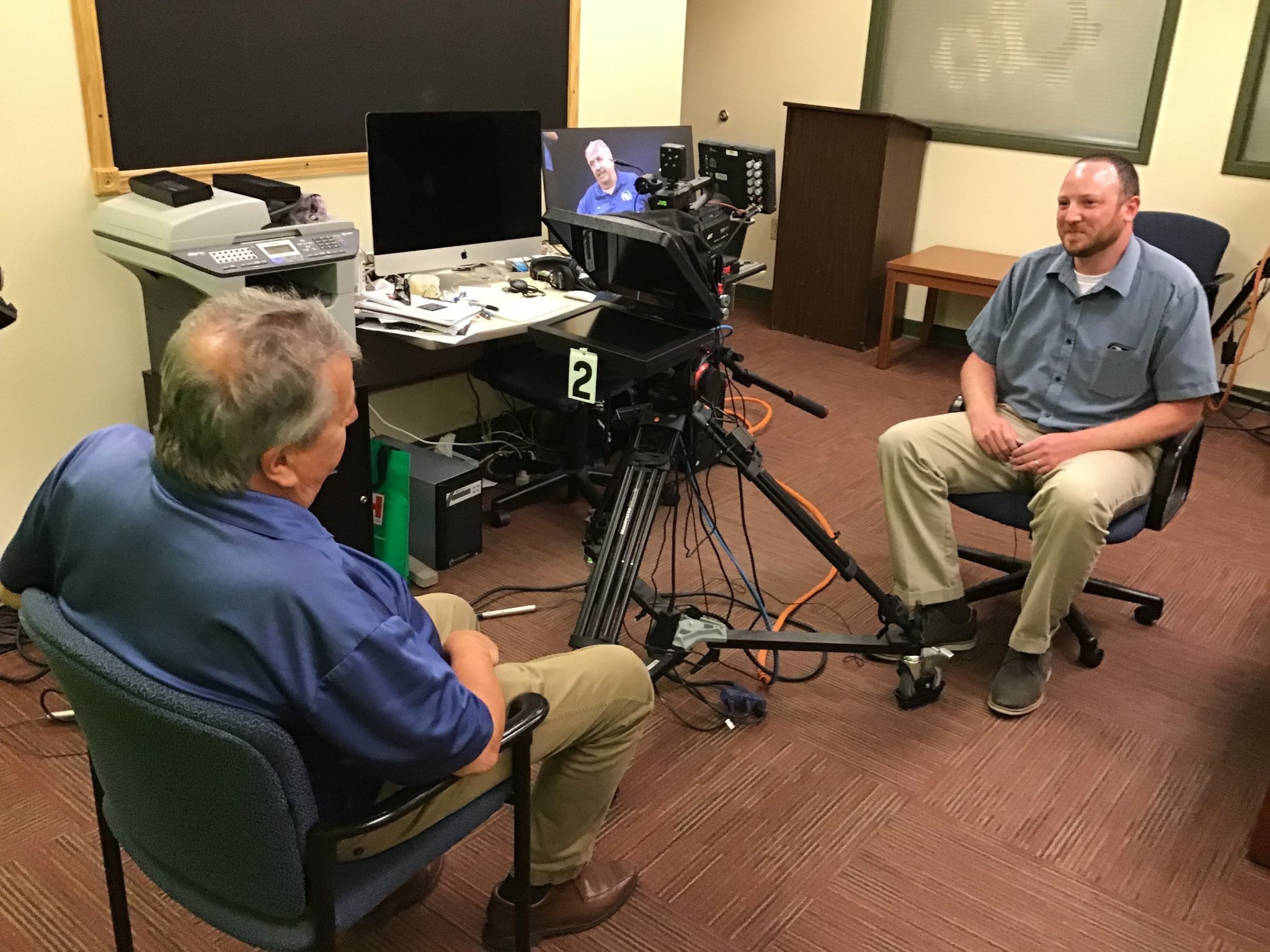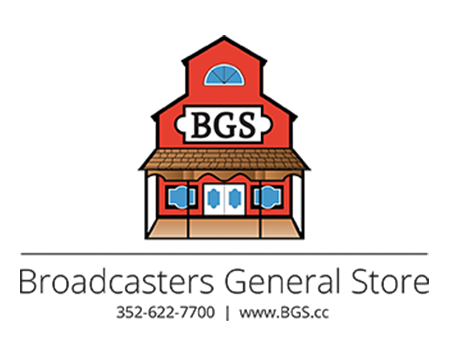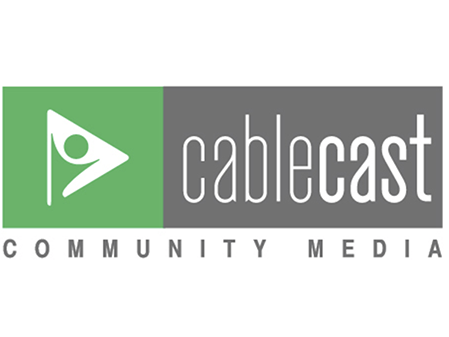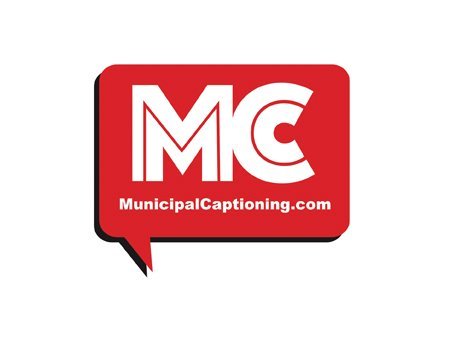Chris Allen (right) interviews Tod Ohnstad for Kenosha Voices.
Kenosha Voices will soon be taking on more of the cultural history of Kenosha, when the team interviews area musicians and former athletes who played softball around the city. But it all began more than a year ago with the idea of interviewing the owners and workers from the “lost industries” — the ones that once formed the economic backbone of Kenosha. “The Kenosha County Historical Society had been discussing doing an oral history project for decades and coming out of the pandemic, it just seemed like it was time we got this project off the ground,” said Chris Allen, executive director of the Kenosha History Center.
“We started with people who worked in industry, but the project quickly evolved,” said Allen. “Once we started airing the program on Kenosha Community Media (KCM) channel 14 and on our YouTube channel, there was so much interest in the project from people beyond that group.” With KCM providing the technical expertise, more than 60 interviews have now been completed with a wide assortment of people -- teachers, small business leaders, politicians, and people who grew up in Kenosha and have memories to share. “There is no insignificant story,” said Allen. “They are all important in their own way.”
Allen serves on the KCM board of directors, so he was aware of the technical services KCM could contribute to the project. Late in 2021 he began talking with Media Coordinator Jason Rimkus. Two volunteers at the History Center were also involved from the start. After interviewing each other, Karl Frederick, who worked for the Kenosha News for 40 years, and Bob Lichter, who worked at Peter Piersch, a manufacturer of fire trucks, turned to interviewing a line-up of guests.
“I think what has made the series so engaging is that we are bringing primary sources in front of the camera to talk about what it was like to be on a factory line building engines and what it was like to be in front of a classroom of kids. When you hear a story from a first-person perspective, it’s powerful. People can relate to it. And it sparks memories. They think, ‘I remember going to the Thompson Strawberry Farm! I remember watching the ships come into the dock!” They remember the good old days. We’re sharing their history. They worked alongside these workers we are talking with. They remember these same businesses.”
The first weekly episode of Kenosha Voices debuted on February 11, 2022. With the experience of over 60 interviews behind him, Allen says, “Oral history is difficult at times. It can bring up difficult subjects.” It can also go in unexpected directions. Before sitting down in front of the cameras, Allen and his volunteer team do a pre-interview with their guest. “We go in with a set of questions reflecting what we think they will be interested in talking about and find that they talk about something completely different. And it’s fascinating. And that’s what we go with.”
Allen also said he’s learned the value of talking with people from different walks of life who have all lived through the same history, but from different vantage points. “Kenosha is a very diverse community so it’s important to talk with people from all backgrounds. What’s been interesting is that we get stories from people who were working in the very same building, but the stories about their experience are very different.”
Kenosha Voices is being recognized by Wisconsin Community Media this year with a Significant Community Program Award, which honors important programs that have made a significant community impact.
You can watch Kenosha Voices on KCM channel 14 on the Charter Spectrum cable system in Kenosha at 5 pm on Saturday and noon on Sunday. The series can also be seen on KCM’s Roku channel. The Kenosha History Center has woven some of the interviews into its Lost Industries exhibit. The interviews are being played on TVs throughout the museum and can be heard by clicking QR codes on displays. The Kenosha History Center also carries the series on its YouTube channel and it now has a podcast called Kenosha Voices. All the interviews are being saved in its archives for future generations to access, research, and learn from.
In this episode of Kenosha Voices Karl Frederick interviews Ray Ivy and Rick Prescott about what it was like to grow up in the Bonnie Hame housing project. The temporary neighborhood was erected during WWII to house workers who came to Kenosha to work for AMC and other factories involved in the war effort.













